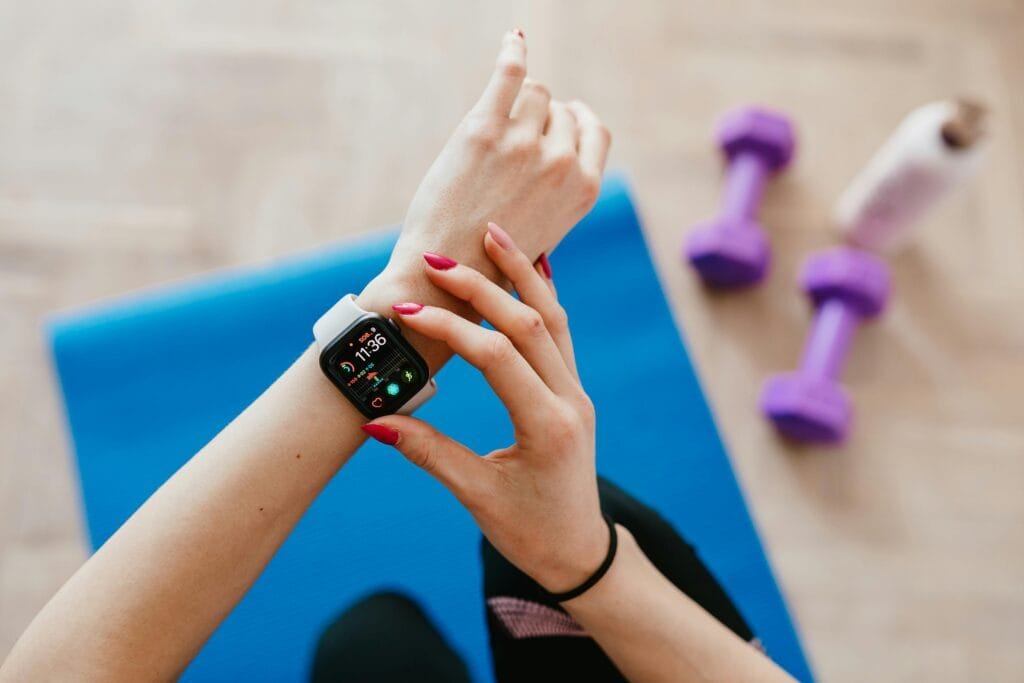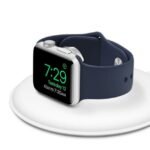Mobile phone glasses play a crucial role in the durability, functionality, and user experience of modern smartphones. From protecting screens to enhancing touch sensitivity, the development of mobile phone glasses has been a journey of innovation and technological advancement. This article explains the importance of mobile phone glasses and the best ones available in 2025.
Importance of Mobile Phone Glasses
Mobile phone glasses are essential for several reasons:
- Protection: They shield the screen from scratches, cracks, and other damages caused by daily use.
- Clarity: High-quality glasses ensure clear visibility and reduce glare, enhancing the user experience.
- Touch Sensitivity: Advanced glasses improve touch sensitivity, making interactions smoother and more responsive.
- Aesthetic Appeal: They contribute to the sleek and modern look of smartphones.
History of Mobile Phone Glasses Development
The journey of mobile phone glasses began with the need for more durable and scratch-resistant materials. Initially, mobile phones used plastic screens, which were prone to scratches and damage. The introduction of Gorilla Glass by Corning in 2007 marked a significant milestone. This chemically strengthened glass provided enhanced durability and scratch resistance.
Over the years, Corning continued to innovate, introducing various generations of Gorilla Glass, each offering improved strength and resistance. The latest iteration, Gorilla Glass Victus, is known for its exceptional durability and scratch resistance. Other companies, such as Asahi Glass with their Dragontrail Glass, have also contributed to the advancement of mobile phone glasses.
Why Check for Glasses When Choosing a Gadget?
When selecting a gadget, checking the type of glass used is crucial for several reasons:
- Durability: Different glasses offer varying levels of protection against drops and scratches.
- Performance: High-quality glasses enhance touch sensitivity and display clarity.
- Longevity: Investing in a device with durable glass can extend its lifespan and maintain its aesthetic appeal.
How Mobile Phone Glasses Are Made?
The manufacturing process of mobile phone glasses involves several steps:
- Raw Material Preparation: High-purity raw materials are melted to form glass.
- Fusion-Drawing Process: The molten glass is drawn into thin sheets using a precise, automated process.
- Chemical Strengthening: The glass undergoes an ion-exchange process, where larger ions replace smaller ones, creating a layer of compressive stress on the surface.
- Cutting and Finishing: The glass sheets are cut to size and undergo finishing processes to ensure smooth edges and optimal performance.
Types of Mobile Phone Glasses
- Gorilla Glass: Developed by Corning, known for its durability and scratch resistance.
- Dragontrail Glass: Developed by Asahi Glass, similar to Gorilla Glass in terms of durability.
- Sapphire Glass: Made from synthetic sapphire, extremely hard and scratch-resistant, often used in high-end devices.
- Tempered Glass: Heat-treated to enhance strength and resistance to breakage.
- Aluminosilicate Glass: Heat-resistant and durable, used in various electronic devices.
- High-Alkali Glass: Known for its strength and durability.
- Laminated Glass: Composed of multiple layers bonded together, offering enhanced impact resistance.
- Plastic Glass: Affordable and shatter-resistant, but less durable than other types.
Glass Used in Latest iPhone
The latest iPhone models, such as the iPhone 16 Pro, use Ceramic Shield, a hybrid material combining glass and ceramic. This glass is known for its exceptional toughness and drop resistance.
Glass Used in Latest Android
The latest Android flagship, the Samsung Galaxy S25 Ultra, features Gorilla Armor 2, a scratch-resistant, anti-reflective glass ceramic cover material.
Glasses Used in Smartwatches

Smartwatches use various types of glass, including:
- Sapphire Glass: Known for its exceptional scratch resistance, used in high-end smartwatches.
- Gorilla Glass: Used in many smartwatches for its durability and scratch resistance.
- Mineral Glass: Common in more affordable smartwatches, offering basic scratch resistance.
Are the Latest Mobile Phone Glasses Unbreakable?

While the latest glasses, such as Gorilla Glass Victus and Ceramic Shield, offer significant improvements in durability and scratch resistance, they are not entirely unbreakable. They provide enhanced protection against drops and scratches but can still break under extreme conditions.
Three Best Mobile Phone Glasses Used in Mobile Phones
- Gorilla Glass Victus: Known for its exceptional durability and scratch resistance.
- Ceramic Shield: Combines glass and ceramic for superior toughness and drop resistance.
- Dragontrail Glass: Offers similar durability and scratch resistance to Gorilla Glass.
Gorilla Glass
Gorilla Glass Victus is the latest and toughest iteration of Corning’s Gorilla Glass series, designed to provide superior protection for mobile devices. Here are the key features and benefits of Gorilla Glass Victus:
Key Features
- Enhanced Drop Resistance: Gorilla Glass Victus can survive drops from up to 2 meters onto hard, rough surfaces like concrete. This is a significant improvement over previous versions and competitive aluminosilicate glasses, which typically fail at lower heights.
- Improved Scratch Resistance: It offers up to 4 times better scratch resistance compared to competitive aluminosilicate glasses. This means it can withstand more wear and tear from everyday use without showing signs of damage.
- Durability: The glass is designed to be tougher and more durable, making it ideal for modern smartphones that are larger and heavier.
Manufacturing Process
The manufacturing process of Gorilla Glass Victus involves several steps:
- Raw Material Preparation: High-purity raw materials are melted to form glass.
- Fusion-Drawing Process: The molten glass is drawn into thin sheets using a precise, automated process.
- Chemical Strengthening: The glass undergoes an ion-exchange process, where larger ions replace smaller ones, creating a layer of compressive stress on the surface.
- Cutting and Finishing: The glass sheets are cut to size and undergo finishing processes to ensure smooth edges and optimal performance.
Applications
Gorilla Glass Victus is used in various high-end smartphones and devices, including the Samsung Galaxy Note20 Ultra. Its superior durability and scratch resistance make it a popular choice for manufacturers looking to enhance the longevity and performance of their devices.
Ceramic Shield Mobile Phone Glasses

Ceramic Shield is a type of glass-ceramic material used in recent iPhone models, starting with the iPhone 12 series. Developed by Corning, the same company behind Gorilla Glass, Ceramic Shield is designed to offer superior protection for mobile phone screens. Here’s a detailed explanation:
Key Features
- Enhanced Drop Resistance: Apple claims that Ceramic Shield provides up to 4 times better drop performance compared to previous iPhone models. This means it can better withstand drops and impacts, reducing the likelihood of screen damage.
- Scratch Resistance: The glass-ceramic material is highly resistant to scratches, helping to maintain the screen’s clarity and appearance over time.
- Optical Clarity: Despite being a ceramic material, Ceramic Shield maintains high transparency, ensuring that the display remains clear and vibrant.
Manufacturing Process
The creation of Ceramic Shield involves several advanced steps:
- Embedding Ceramic Nanocrystals: Tiny ceramic nanocrystals are embedded into the glass matrix through a high-temperature crystallization process. These nanocrystals are smaller than the wavelength of light, which allows the material to remain transparent.
- Ion-Exchange Process: The glass undergoes a dual ion-exchange process, where larger ions replace smaller ones, creating a layer of compressive stress on the surface. This process enhances the glass’s strength and durability.
Benefits
- Toughness: The interlocking structure of the ceramic crystals helps to deflect cracks and chips, making the glass tougher and more resilient.
- Durability: The combination of ceramic and glass properties results in a material that is both hard and durable, providing long-lasting protection for the device.
Comparison with Other Glasses
Ceramic Shield is often compared to Gorilla Glass Victus, another high-end glass used in many Android devices. While both are made by Corning, Ceramic Shield is a glass-ceramic hybrid, whereas Gorilla Glass Victus is an aluminosilicate glass. Each has its strengths, with Ceramic Shield excelling in drop resistance and Gorilla Glass Victus known for its scratch resistance.
Dragontrail Mobile Phone Glasses
Dragontrail Glass is a type of chemically strengthened glass developed by Asahi Glass Co. (AGC), a Japanese company. It is designed to provide robust protection for mobile devices, including smartphones, tablets, and other electronic gadgets. Here’s a detailed explanation of Dragontrail Glass:
Key Features
- Scratch Resistance: Dragontrail Glass is highly resistant to scratches, making it ideal for protecting screens from everyday wear and tear.
- Durability: It is known for its toughness and ability to withstand impacts, reducing the likelihood of cracks and breaks.
- Thinness and Lightweight: Despite its strength, Dragontrail Glass is thin and lightweight, which helps in maintaining the sleek design of modern devices.
- Environmental Friendliness: The glass is manufactured without harmful substances like lead, arsenic, and antimony, making it environmentally friendly.
Manufacturing Process
Dragontrail Glass is produced using a highly efficient float process, which involves:
- Melting Raw Materials: High-purity raw materials are melted to form glass.
- Float Process: The molten glass is floated on a bed of molten tin to form a flat, uniform sheet.
- Chemical Strengthening: The glass undergoes an ion-exchange process, where larger ions replace smaller ones, creating a layer of compressive stress on the surface.
Types of Dragontrail Glass
- Dragontrail: The original version, known for its basic scratch and impact resistance.
- Dragontrail X: An advanced version that is 30% stronger than the original Dragontrail and 8 times stronger than normal soda-lime glass. It is highly suitable for high-end mobile devices.
- Dragontrail Pro: Offers enhanced durability and scratch resistance, designed for premium devices.
Applications
Dragontrail Glass is used in various devices, including:
- Smartphones: Many budget and mid-range smartphones use Dragontrail Glass for screen protection.
- Tablets: It is also used in tablets to provide a durable and scratch-resistant surface.
- Wearable Devices: Some smartwatches and fitness trackers use Dragontrail Glass for its toughness and lightweight properties.
Comparison with Other Glasses
Dragontrail Glass is often compared to Corning’s Gorilla Glass. While both offer excellent scratch and impact resistance, Dragontrail Glass is known for being slightly more affordable and is often used in budget and mid-range devices. Gorilla Glass, on the other hand, is more commonly found in high-end smartphones.
Future Developments in Mobile Phone Glasses
The future of mobile phone glasses looks promising, with ongoing research and development focusing on:
- Increased Durability: Enhancing the strength and scratch resistance of glass materials.
- Flexible Glass: Developing bendable and foldable glass for new form factors.
- Self-Healing Glass: Exploring materials that can repair minor scratches and damages on their own.
- Enhanced Optical Clarity: Improving the clarity and anti-reflective properties of glass.
Mobile phone glasses have come a long way from the early days of plastic screens. Today, they play a vital role in protecting and enhancing the functionality of our devices. With continuous advancements in materials and manufacturing processes, the future of mobile phone glasses promises even greater durability, clarity, and innovative features.
By understanding the importance, types, and advancements in mobile phone glasses, you can make informed decisions when choosing your next gadget, ensuring they get the best protection and performance for their investment.









